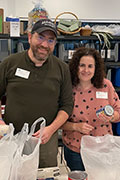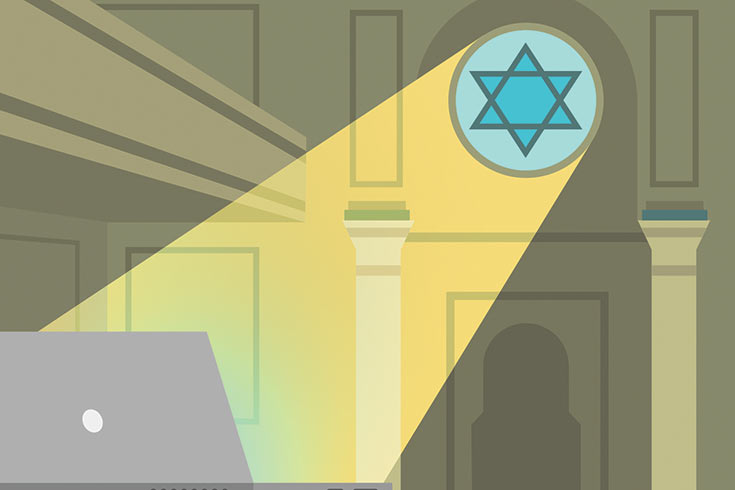An Epic Future
By Joel Christensen ’01, GSAS MA’01

Illustration by Nick Lu
This story originally appeared in the Summer 2023 edition of Brandeis Magazine.
Part of Past as Prologue
At Brandeis’ founding, the scholars who had fled Europe and the students who joined them were, by and large, inheritors of “great books” traditions, sharing cultural frameworks that included the Hebrew Bible and Homer’s “Iliad.”
At the time, few scholars were ready to question whether these traditions contributed to the death and destruction of the 20th century. But philosopher Simone Weil did. In her famous essay “The Iliad, or The Poem of Force” (1939), she worried that violence had become an inevitable — yet somehow invisible — centerpiece of Western civilization.
For the rest of the 20th century, the study of the classics — and of literature in general — engaged with the different ways of seeing, being, and telling the story of the world. We are still struggling to find some balance between preserving the study of the past as it used to be and welcoming into our classrooms different cultures and perspectives on human nature. At the same time, in the wake of new technology and changing expectations, educators are being asked to do more, move faster, and engineer and code the world to come.
Our fields must reckon with how our intellectual traditions have excluded some peoples and privileged others. And we must center fundamental questions in our work: What does it mean to be human? What is the value of our lives? How do we make — or, given climate change, preserve — a world we want to live in together?
At Brandeis, my discipline was once part of a well-known Mediterranean studies program. We have moved back in that direction — from classical studies to classical and early Mediterranean studies — to reconsider the boundaries of how we study the ancient world.
This doesn’t mean Homer won’t be read at Brandeis 25 years from now. To the contrary, the Homeric epics show a deep commitment to seeing humanity from different angles, examining the lives and experiences of both the Trojans and the Greeks.
But the Homeric epics will share space with ancient narratives from all over the world that reveal who we are and from whom we come. Engaging in this study together can help us, as Simone Weil said, “learn that there is no refuge from fate, learn not to admire force, not to hate the enemy, nor to scorn the unfortunate.”
Joel Christensen is a professor of classical studies.



